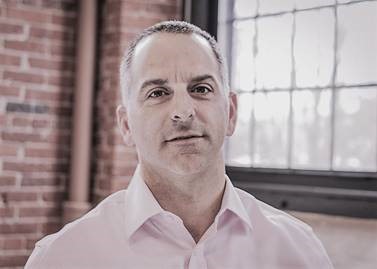Jeff Liguori serves as the lead partner for Napatree Capital, which he founded this year with Jim Maynard and Peter Miniati. Located at The Foundry office complex off Interstate 95 near downtown Providence, Napatree is an independent investment-management and wealth advisory boutique.
Prior to starting the firm, Liguori served as managing director and chief investment officer for Hartford-based Olson Mobeck Investment Advisors. Before that, he managed assets for high net worth individuals and institutions at Westerly-based Washington Trust Wealth Management.
PBN: What gave you the confidence to break away and start your own investment/wealth-management firm?
LIGUORI: I’m an entrepreneur at heart. I had wanted to start my own firm for some time but never got serious about it for various reasons. Fortunately, I had been managing assets and advising a group of clients for many years that I assumed would remain loyal to me if I launched a new firm. My assumption was correct – 100 percent of my clients followed me to Napatree Capital. But the real key was finding the right partners. I was lucky that they found me, and collectively the decision was easy.
PBN: What led you to bring in Mr. Maynard and Mr. Miniati as your partners?
LIGUORI: Actually, Peter Miniati brought the three of us together. Peter and I worked together for six years and we got together for lunch one day about a year ago and said, “We should do this.” He suggested bringing Jim [Maynard] aboard. As all things Rhode Island, Jim and I have been friends for 10 years or so, and he and Peter go back a lot longer, working together at Fleet Financial in the late ’80s/early ’90s. I had no idea that Peter even knew Jim. The three of us have complementary skill sets, overlapping networks and share a long-term view: We had little hesitation that Napatree Capital would be a successful venture.
PBN: What are the services you provide and for which types of clients?
LIGUORI: Napatree Capital is an investment-management and wealth advisory firm. Specifically, we are an active money manager using proprietary strategies [stocks, bonds, funds] to invest on behalf of clients. In addition, we advise on issues related to a client’s financial well-being – titling of assets, tax considerations, retirement planning and risk management.
As a boutique investment firm, we work with a spectrum of clients: entrepreneurs who have concentrated equity positions, high net worth families, business professionals and what we call “emerging” endowments. There is an underserved market of smaller institutions, where we will act as an outsourced chief investment officer and/or investment manager. We are building a community at Napatree Capital, whereby we can connect our clients and intersecting networks to further everyone’s mutual business interests.
PBN: For those not familiar with your field, how do you find and win clients?
LIGUORI: Clients come to us through personal and professional networks primarily. We have done very little advertising. Peter has a strong reputation with the legal and accounting community in Rhode Island. Jim has been advising clients – mostly in the greater Boston area – for more than 25 years. We know how crucial it is when a business professional or existing client refers a prospect to us because their reputation is at stake. Responsiveness to client needs is central to the culture at Napatree.
PBN: What do you see as emerging high-risk, high-reward investment/wealth-management strategies or markets?
LIGUORI: The business risk in investment management is a downward pressure on fees. We recognize that trend and have embraced technology and built a robust firm on a cost-effective platform. Consequently, we pass the savings on to our clients through lower fees. And there are also many firms who carry the “wealth-management” label but are not necessarily held to a fiduciary standard. We always act as a fiduciary and believe in constant communication and complete transparency.
In terms of investing, this is the longest bull market for stocks in the history of the United States at approximately 3,400 days from the March 2009 bottom. But markets aren’t a function of time. It is likely we are coming into a more volatile period for equities, which doesn’t necessarily mean the market goes straight down. Volatility, however, favors active investment management. So, pure indexing is probably carrying more risk than it has in the past 10 years or so.
There are other pockets of potential bubbles, such as private equity and other nonliquid asset categories. We believe there is a place for those investments, but the risk relates to the amount of exposure for an investor. One problematic area is the media, in my opinion. I think the financial news media creates a hype that feeds momentum and ultimately ends poorly for the average investor. We certainly saw that in trading of cryptocurrencies. Access to markets is easier than ever, as well, which is good for the small investor, but it has led to ultra-short-term investing. Patience, discipline and taking the long view seems to be a lost practice; we work hard to do that every day on behalf of our clients.
Scott Blake is a PBN staff writer. Email him at Blake@PBN.com.











